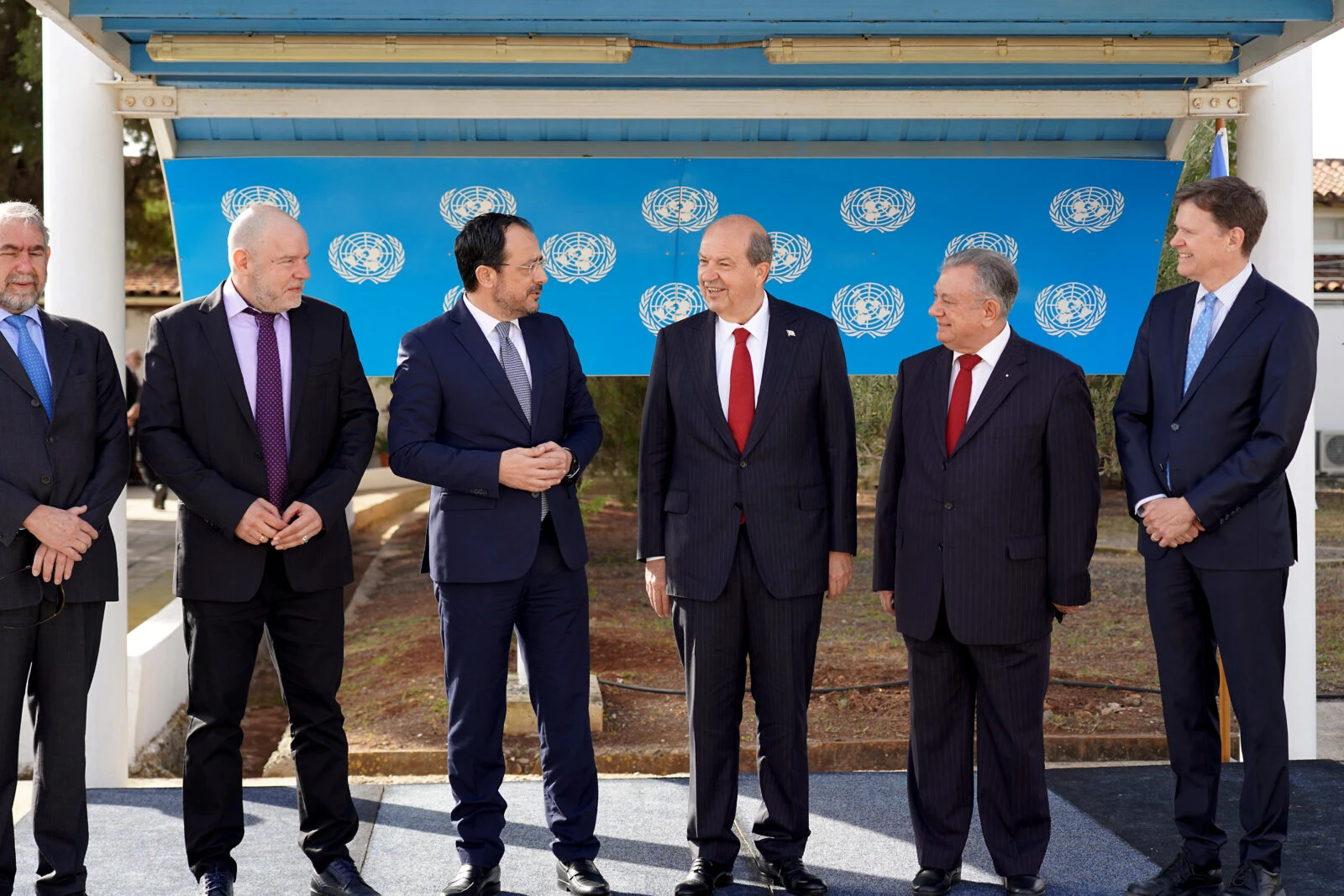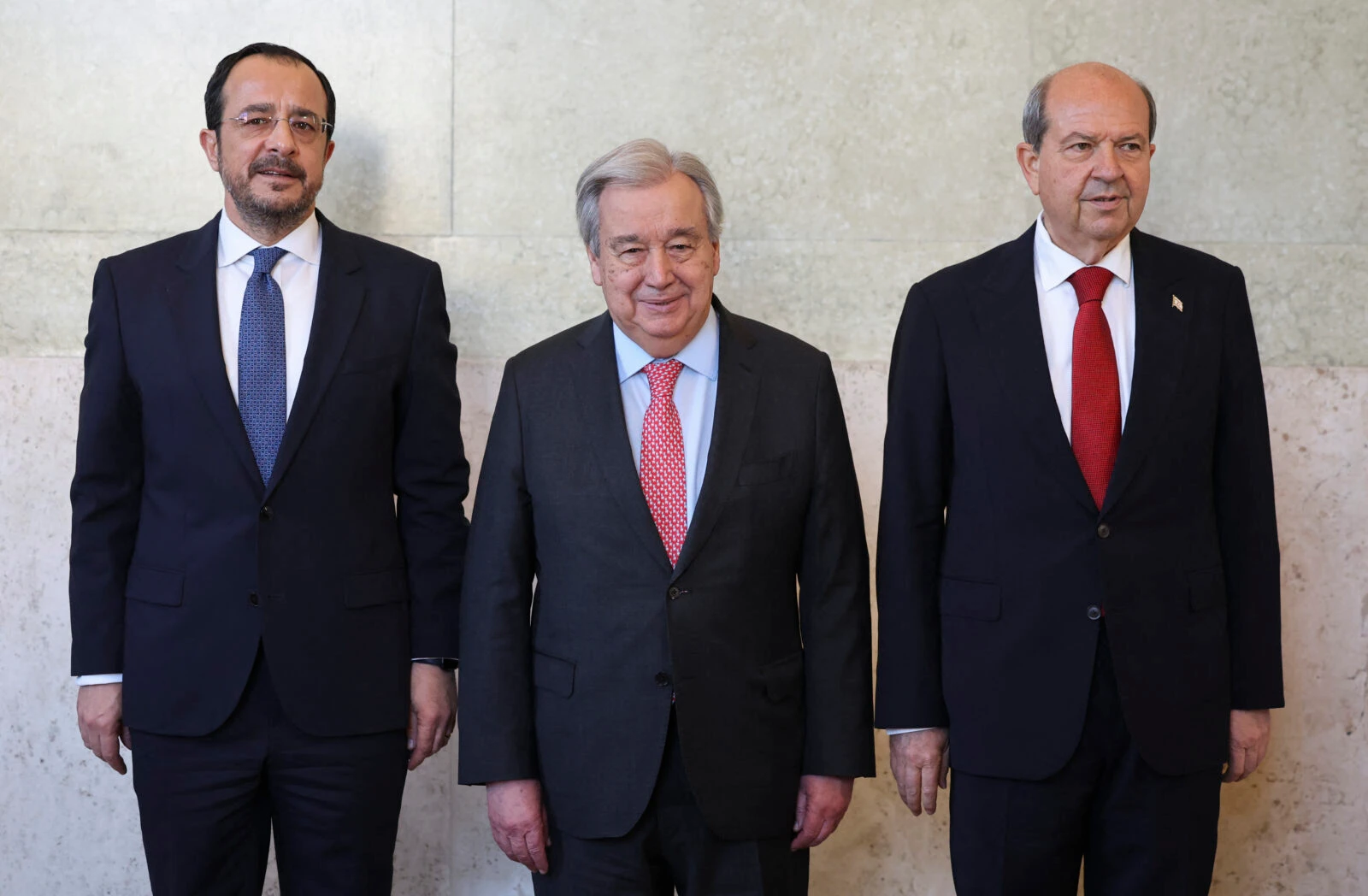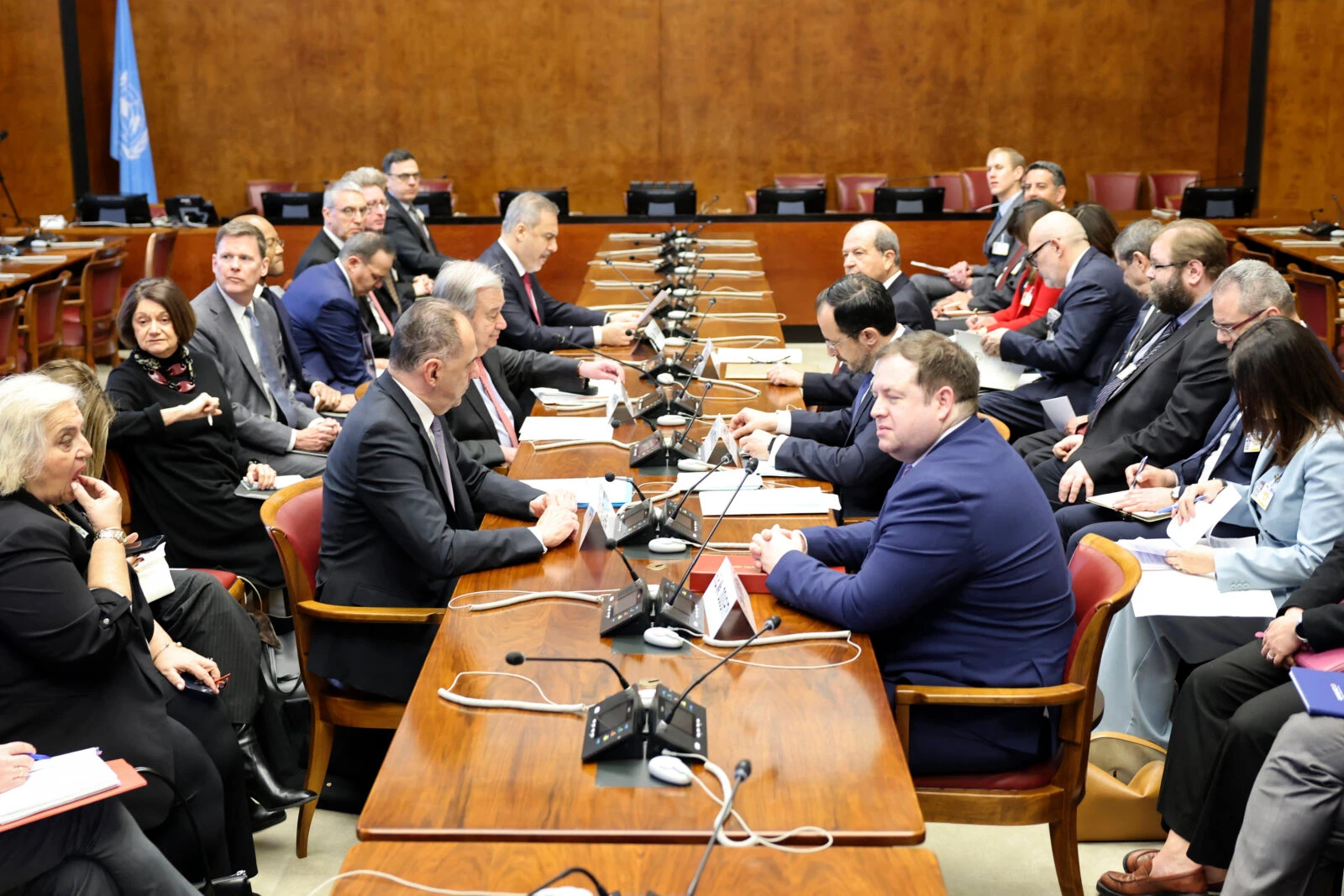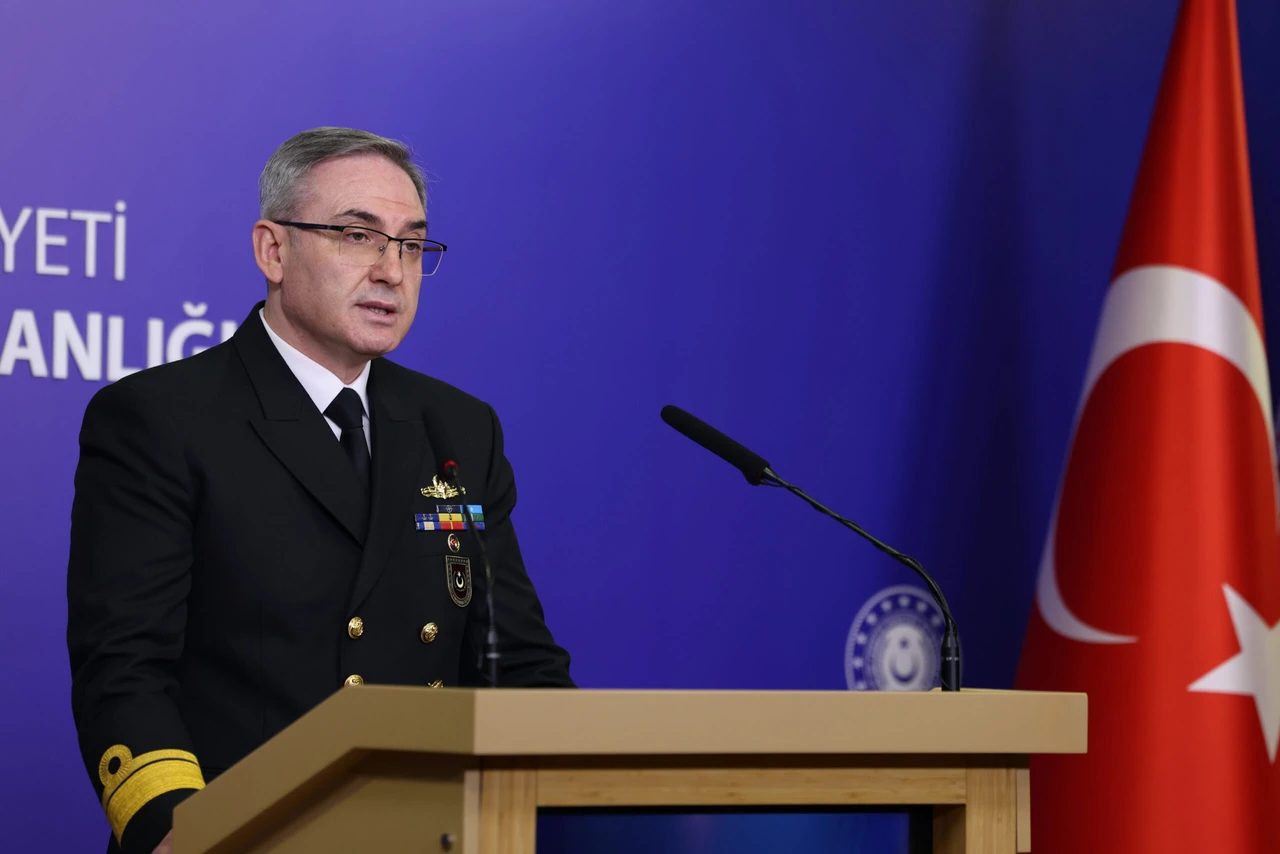Geneva Cyprus meeting signals departure from federal model: Turkish sources
 An aerial view of the Besparmak Mountains in Turkish Republic of Northern Cyprus (TRNC) on May 01, 2025. (AA Photo)
An aerial view of the Besparmak Mountains in Turkish Republic of Northern Cyprus (TRNC) on May 01, 2025. (AA Photo)
The exclusion of the federal model from the agenda of the March 2025 informal Cyprus meeting in Geneva marks a turning point in the island’s decadeslong conflict, according to Turkish diplomatic sources.
For the first time in 60 years, the two-state solution framework dominated the discussion, with the Turkish Republic of Northern Cyprus (TRNC)—backed by Türkiye—formally reiterating its withdrawal of support for the long-discussed bi-communal, bi-zonal federation model.
The TRNC delegation, led by President Ersin Tatar, emphasized the need for recognition of sovereign equality and equal international status as prerequisites for any future formal negotiations.

UN envoy appointed for exploratory mandate
Following consultations with the Turkish Cypriot side, former Colombian Foreign Minister Maria Angela Holguin Cuellar was appointed in January 2024 as the U.N. secretary-general’s personal envoy for Cyprus.
Her six-month mandate was limited to exploring whether common ground exists for launching new negotiations.
Holguin submitted her report to the U.N. secretary-general in July 2024 after visiting both sides of the island, though its content has not been made public.

March meeting prioritized cooperation over political settlement
The March 17–18 meeting in Geneva, held under the auspices of the U.N. secretary-general and attended by leaders of both Cypriot communities, their foreign ministers, and the U.K.’s minister of state, notably avoided any mention of the federal model.
With no political settlement in immediate reach, the talks focused on cooperation projects to benefit both communities.
Agreed areas included new border crossings, mine clearance, climate and environmental initiatives, renewable energy in the buffer zone, restoration of cemeteries, and youth programs.
A new technical committee was established to monitor progress, and a follow-up meeting is scheduled for July 2025 in a similar informal format.

Türkiye attributes shift to its firm Cyprus policy
Diplomatic sources said the lack of reference to the federal model reflects a critical juncture and is a result of Türkiye’s consistent policy line.
Ankara emphasizes that the failure to resolve the Cyprus issue stems from the Greek Cypriot administration’s unwillingness to share political and economic power with the Turkish Cypriots.
Türkiye also expects the U.N. secretary-general to base his future recommendations on the on-the-ground realities of the island, welcoming his current approach.
Call for equitable UN and EU positioning
Ankara reiterated that its expectation from third parties, including the European Union, is to abandon support for the Greek Cypriots under the guise of EU solidarity and instead support the U.N. process.



